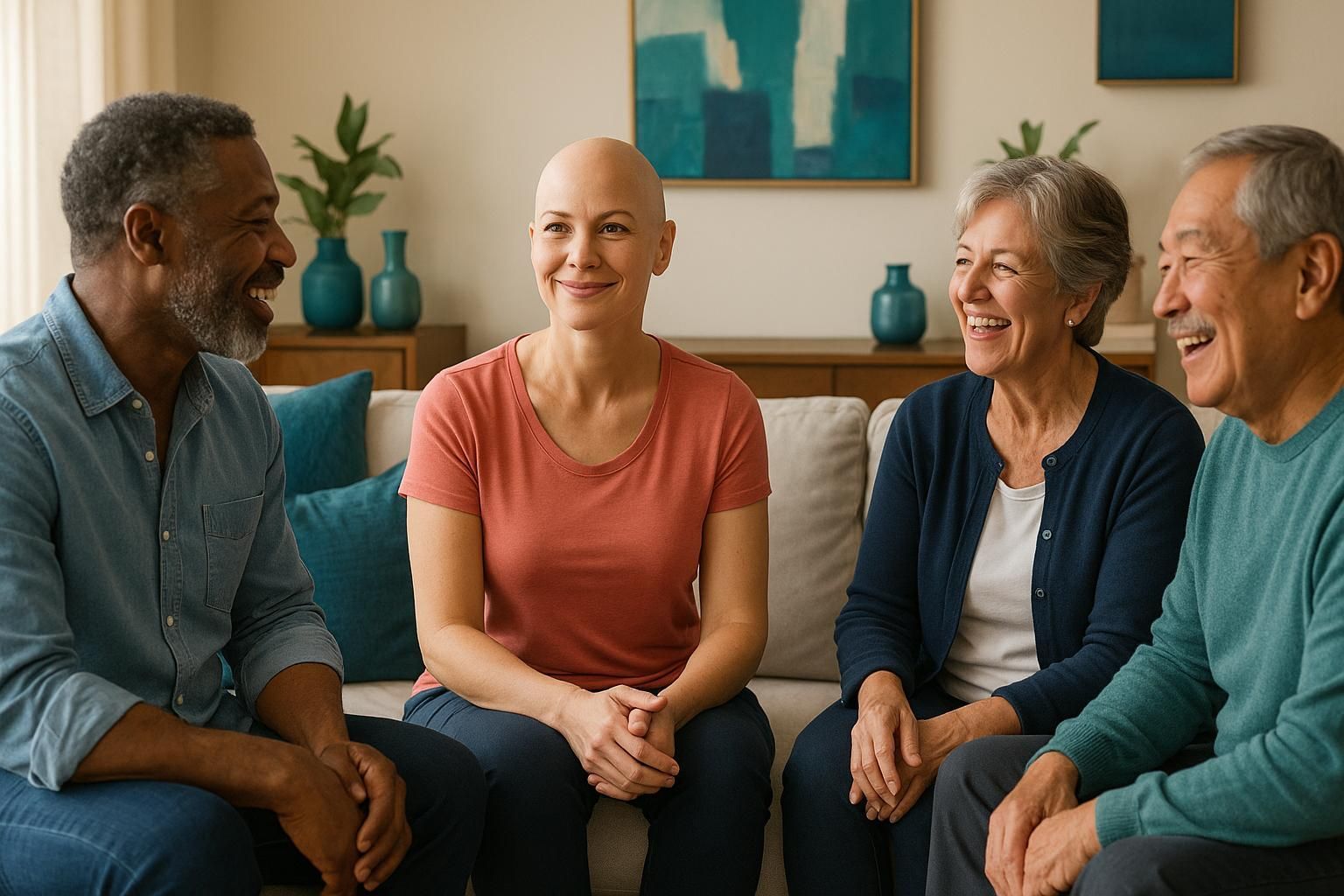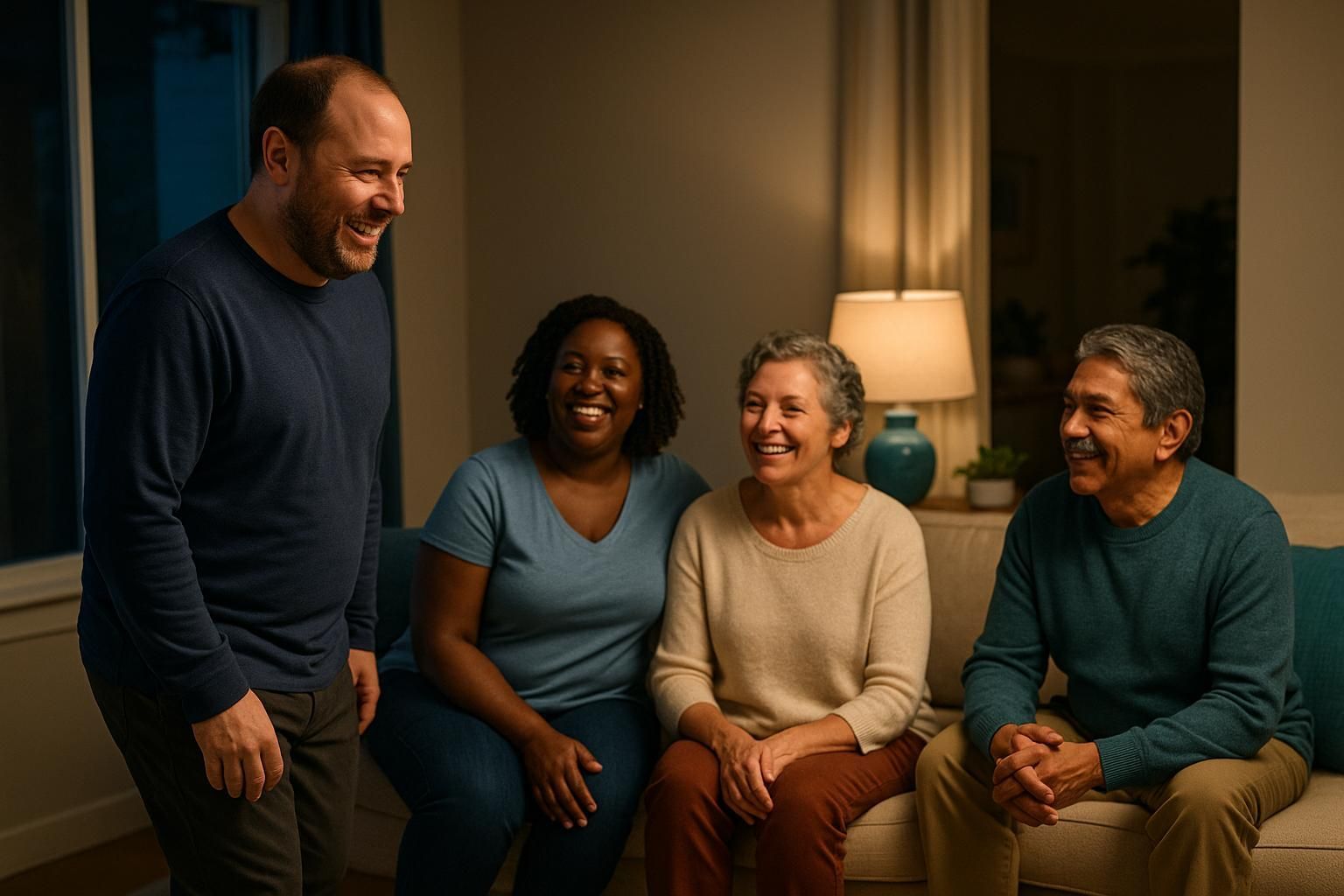Clinical Guidelines for Colon Screening: Evidence-Based Recommendations and Risk Assessment
By Dr. Ritha Belizaire
Quick Insights
When to use colon screening depends on individual risk factors, age, and clinical guidelines that recommend regular colorectal cancer screening beginning at age 45 for average-risk individuals. Healthcare providers evaluate patients for colon screening based on symptoms such as rectal bleeding, persistent changes in bowel habits, unexplained abdominal pain, and family history of colorectal cancer or inflammatory bowel disease. Early detection through appropriate screening protocols, including colonoscopy, stool-based tests, and CT colonography, significantly improves treatment outcomes and reduces mortality from colorectal cancer.
Key Takeaways
- Most people need colon cancer screening starting at age 45, or younger if you have risk factors.
- Signs like rectal bleeding, unexpected weight loss, or new abdominal pain should prompt a specialist visit.
- Modifiable risks include eating lots of red meat, low fiber, smoking, and inactivity—not just age or family history.
- Colorectal cancer is rising in adults under 50, making timely care more critical than ever.
Why It Matters
Understanding when to use colon for screening or specialist care can protect both your health and peace of mind. Acting early supports your ability to stay present for family and avoid complex surgeries—reducing worry about the future and helping you take control of your wellbeing.
Introduction
As a board-certified general and colorectal surgeon serving Houston, I know first-hand how confusing the phrase "when to use colon" can be—especially when bowel symptoms raise more questions than answers. Learn more about my credentials as a board-certified colorectal surgeon.
When to use colon means understanding the right time to pursue colon cancer screening or see a colorectal specialist. This isn't just a medical checklist; it's recognizing early warning signs—like bleeding, new pain, or family history—that can literally change the course of your health and quality of life.
Colorectal health concerns don't just affect your body—they can throw off your plans, bring embarrassment, and leave you stuck in worry. Research from major institutions shows that early attention to symptoms dramatically improves outcomes for colon and rectal conditions, helping you stay present and active for your family.
If you're in Houston and wondering when it's time to act, clear answers and compassionate, rapid care are closer than you think.
When to Use a Colon: Medical vs. Grammar
Let's clear up the confusion right away: if you landed here searching for grammar tips, you're in the wrong place—though I do appreciate a well-placed colon in a sentence! My focus is on your actual colon, the part of your digestive tract that can cause real trouble if ignored.
Redirecting Grammatical Searchers
If you're looking for advice on punctuation, I recommend checking out resources like Purdue OWL or Grammarly. Here, I'm talking about when to use colon screening or see a specialist for your health.
Why Colon Health Matters
Your colon is more than just a punctuation mark—it's a vital organ that keeps your body running smoothly. When things go wrong, symptoms can sneak up on you, sometimes quietly, sometimes with a bang.
As a board-certified colorectal surgeon, I've seen how early attention to colon health can prevent emergencies and even save lives. Ignoring warning signs is like ignoring a flashing check engine light—eventually, you'll end up on the side of the road.
Understanding Colon Health: What Patients Need to Know
Colon health is about more than just avoiding discomfort—it's about protecting your long-term wellbeing. The colon, or large intestine, absorbs water and nutrients, and helps form and eliminate waste. When it's not working right, you might notice changes in your bowel habits, pain, or even bleeding.
Colon Anatomy and Function
Think of your colon as the body's final processing plant. It takes what's left after digestion and turns it into something you can flush away. Problems here can show up as constipation, diarrhea, or more serious issues like blockages or inflammation. In my practice, I've found that understanding this basic function helps patients feel less embarrassed and more empowered to talk about their symptoms.
Colorectal Cancer Trends
Colorectal cancer (a type of cancer affecting the colon or rectum) is on the rise, especially in adults under 50. According to recent clinical guidelines, this trend is a growing public health concern, with risk factors including age, family history, and certain lifestyle habits like eating lots of red or processed meat, low fiber intake, smoking, and inactivity.
The American Cancer Society reports that each year, over 154,000 people in the U.S. are diagnosed with colon or rectal cancer, and more than 107,000 of those cases involve the colon alone. These numbers highlight why it's so important to pay attention to your colon health and not brush off new symptoms.
Common Colon Conditions and Warning Signs
When your colon isn't happy, it has ways of letting you know. Some symptoms are subtle, while others are impossible to ignore. From my perspective as a board-certified colorectal surgeon, accurate diagnosis is critical—many patients are told they have hemorrhoids when it's actually rectal prolapse or even early-stage colorectal cancer.
Symptoms Not to Ignore
Here are some warning signs that should prompt you to call a physician:
- Rectal bleeding (bright red or dark)
- Unexplained weight loss
- New or persistent abdominal pain
- Changes in bowel habits (constipation, diarrhea, or narrowing of stool)
- Feeling like you can't empty your bowels completely
Modifiable risk factors—like eating a lot of red or processed meat, drinking alcohol, smoking, and being inactive—can increase your risk for colon problems. Addressing these can make a real difference.
In my experience, patients often delay care out of embarrassment or fear. But catching issues early can mean simpler treatments and better outcomes.
Colorectal Cancer Screening Recommendations
Screening saves lives. Most people should start colon cancer screening at age 45, but if you have a family history or other risk factors, you may need to start earlier. Colonoscopy is the gold standard, recommended every 10 years if results are normal.
Excitingly, a new blood test called Shield can detect over 83% of colorectal cancers found on colonoscopy, offering another option for some patients. If polyps (small growths) are found, your physician may recommend more frequent follow-up.
When to See a Colon Specialist in Houston
Knowing when to see a specialist can be tricky. If you have persistent symptoms, a family history of colon cancer, or abnormal screening results, it's time to get expert input. Consulting a colorectal surgeon early may lead to a thorough evaluation and a clear treatment plan.
Benefits of Early Specialist Involvement
Colorectal surgeons often have access to advanced diagnostic tools and minimally invasive treatments that may not be available in general clinics. Early intervention often means less invasive procedures, faster recovery, and better peace of mind.
Houston Community Surgical's Access Model
At Houston Community Surgical, I prioritize same-day or next-day appointments because I know waiting only adds to your anxiety. My team and I are committed to making you feel comfortable discussing even the most sensitive symptoms. Whether you need a routine screening or help with a complex condition, you'll get expert, compassionate care right here in Houston.
Dr. Ritha Belizaire's Approach: Why Expertise Matters
As a dual board-certified general and colorectal surgeon, I bring specialized training and a patient-centered mindset to every case. My goal is to make sure you feel heard, respected, and confident in your care plan.
Board-Certified, Fellowship-Trained
Colorectal surgeons are trained to perform a range of procedures, from routine screenings to complex surgeries. With extensive experience, I have treated numerous cases of fecal incontinence, rectal prolapse, and colorectal cancer. Extensive experience enables colorectal surgeons to tailor treatments to individual patient needs, aiming for optimal outcomes. Discover more about our specialized colorectal care.
Minimally Invasive and Patient-Centered Care
Minimally invasive techniques, such as laparoscopic surgery, are often used to reduce pain and speed up recovery. Staying up to date with the latest research and technology is part of my commitment to you. Recent advances in cancer care, including efforts to reduce disparities and improve access, are making a real difference for patients everywhere.
Patient Story: Finding Clarity and Hope
Let me share a story that's close to my heart. A patient came to me after months of ignoring rectal bleeding, thinking it was just hemorrhoids. He was anxious, embarrassed, and worried about missing work. After a thorough evaluation and a colonoscopy, we found an early-stage cancer. Because he acted when he did, we were able to treat it with a minimally invasive approach, and he was back to his normal routine in weeks—not months.
Stories like this are why I do what I do. National statistics show that over 154,000 Americans are diagnosed with colon or rectal cancer each year, but early detection can change the outcome. Colon cancer case and national relevance. I've seen firsthand how compassionate, expert care can turn fear into relief and confusion into clarity.
What Our Patients Say on Google
Patient experiences are at the heart of everything I do as a colorectal surgeon in Houston. The journey through diagnosis and treatment can be overwhelming, but genuine feedback from those I've cared for reminds me why compassion and clarity matter so much.
I recently received feedback that captures what we aim to provide for every patient facing uncertainty:
"I recently found myself presenting with a series symptoms which in turn prompted visits to several doctors. I've never had so many doctors in my life. Diagnostic exams and imaging procedures eventually led to a diagnosis of cancer. I remember being still groggy and half asleep post- colonoscopy when my GI doctor told my wife and I that he had found a sizable mass in my colon. He'd taken a biopsy and would get back to us with results. For me, things were moving way too fast. As for my wife, she felt things just couldn't move fast enough. I found myself running through all the possible emotions that come with this type of diagnosis. I felt scared, sad, and helpless. I worried about how my family would cope with whatever was coming next. I felt a sense of loneliness as I waited by myself in the waiting area for one of my many appointments that followed. It was difficult finding positivity amidst so much uncertainty.
My experience under the care of Dr. Ritha Belizaire has been nothing short of amazing. From the moment my wife and I walked into Dr. Belizaire's office, we were met with warmth and compassion. Her genuine concern for my well-being was palpable, alleviating many of the fears that had been weighing heavily on me. She drew out on paper for us, explaining exactly where my cancer was and how she was going to remove it. Her drawing was not very good. I hadn't laughed in a while but she made me laugh when she assured me that she was a much better surgeon.
Throughout the entire process, Dr. Belizaire has demonstrated a level of expertise and professionalism that replaced our feelings of fear and helplessness with feelings of confidence and hope. The surgery that removed the mass was pivotal for us, and we couldn't have asked for a better surgeon. Dr. Ritha's attention to detail instilled a sense of trust that I and my family are grateful for.
I personally hate going to the doctor and am fearful of being in a hospital, but with Dr. Belizaire it was different. I looked forward to her daily visits. I remember that although I was feeling weak and nauseous in my hospital room, I also felt safe and cared for. Her willingness to listen, answer our questions, and provide support went above and beyond what we could have hoped for in a surgeon.
As I move forward with my treatment, I do so with a sense of optimism. Dr. Ritha's commitment to my care has been a positive experience in what could have otherwise been a dark and daunting trial. I would genuinely like to recommend Dr. Belizaire to anyone facing similar challenges. Her expertise, compassion, and dedication to patients is truly commendable, and I am eternally grateful for the pivotal role she has played in my healing. Thank you, Dr. Belizaire, for being not just a surgeon, but a source of hope and inspiration."
— Lechuga
You can read more Google reviews here.
Stories like this remind me that expert care is about more than procedures—it's about restoring hope and confidence, especially when facing the unknown.
Advanced Treatments at Houston Community Surgical
If you're dealing with fecal incontinence, consider exploring advanced treatment options like Axonics sacral neuromodulation.
Colon Health and Specialist Care in Houston
Living in Houston means you have access to some of the most advanced colorectal care in the country, but it also means navigating a city with diverse lifestyles and health needs. Our community's rich food culture, busy schedules, and unique stressors can all play a role in colon health.
For many Houstonians, symptoms like rectal bleeding or changes in bowel habits can be easy to dismiss, especially with so much going on. But early action is key—colorectal cancer rates are rising in younger adults, and timely screening or specialist evaluation can make all the difference.
At Houston Community Surgical, I offer same-day and next-day appointments because I know waiting isn't just inconvenient—it can be anxiety-inducing. My practice is dedicated to providing clear answers and compassionate care, right here in the heart of Houston.
If you have questions about colon screening or when to see a specialist, consider consulting a healthcare provider.
Conclusion
If you're wondering when to use colon screening or see a specialist, the answer is simple: don't ignore warning signs like bleeding, new pain, or changes in your bowel habits. In summary, early action can prevent complications and help you get back to living your life—without the constant worry.
As a board-certified general and colorectal surgeon, I've seen how prompt, compassionate care can make all the difference, especially for Houstonians juggling busy lives and family responsibilities.
Expertise in minimally invasive procedures and sacral neuromodulation allows for treatments that prioritize both comfort and effective results. If you're ready to stop missing out on life's moments, call 832-979-5670 for a same-day or next-day appointment in Houston.
Not local? I also offer virtual second opinions at www.2ndscope.com—so expert help is always within reach. Your comfort, dignity, and peace of mind are my top priorities. Feel free to schedule a same-day consultation today.
Stay informed and updated on colorectal health topics—consider subscribing to my colorectal health newsletter.
This article is for educational purposes only and should not be used as a substitute for professional medical advice, diagnosis, or treatment. Always seek the advice of your physician or other qualified healthcare provider with any questions you may have regarding a medical condition or treatment options. Never disregard professional medical advice or delay in seeking it because of something you have read in this article.
Frequently Asked Questions
What are the most important signs that mean I should see a physician about my colon?
If you notice rectal bleeding, unexplained weight loss, new or persistent abdominal pain, or changes in your bowel habits, it's time to see a physician. These symptoms can signal serious conditions, including colorectal cancer, and early evaluation leads to better outcomes and simpler treatments.
Where can I find same-day or next-day colon care in Houston?
You can schedule a same-day or next-day appointment with me at Houston Community Surgical. I understand that waiting adds to your anxiety, so I prioritize rapid access and compassionate care for all patients in Houston. Just call 832-979-5670 to get started.
As a busy professional, how do I know if I need a specialist or just routine screening?
If you're over 45 or have a family history of colon cancer, routine screening is recommended. However, if you have new symptoms or abnormal test results, seeing a board-certified colorectal specialist ensures you get the most accurate diagnosis and advanced treatment options tailored to your needs.
SHARE ARTICLE:
SEARCH POST:
RECENT POSTS:






